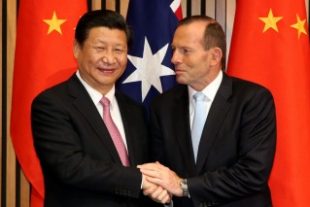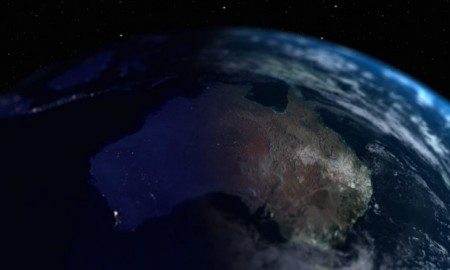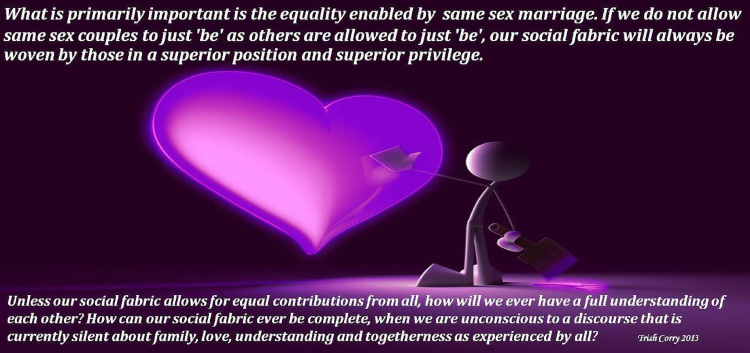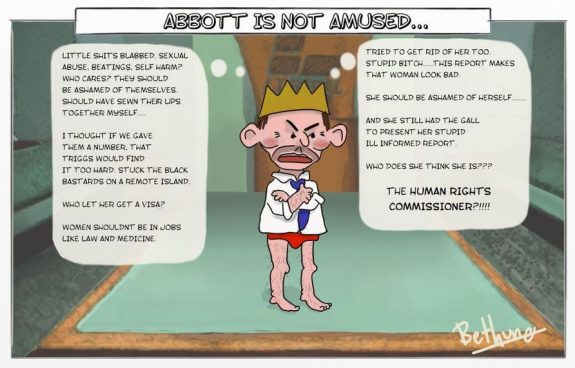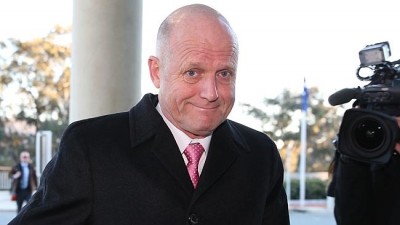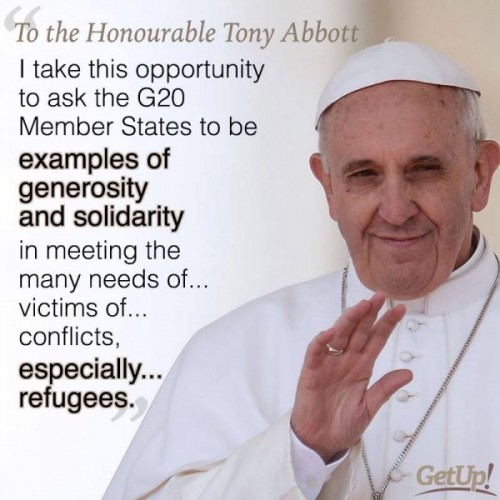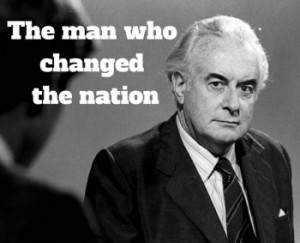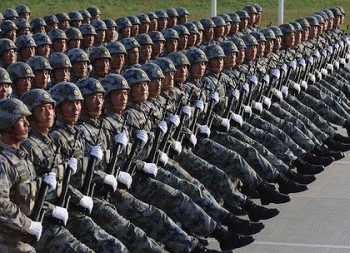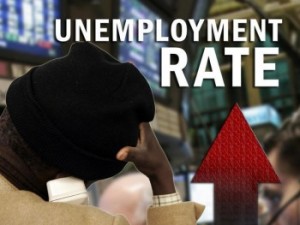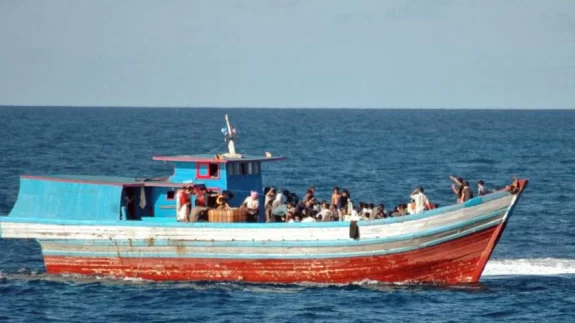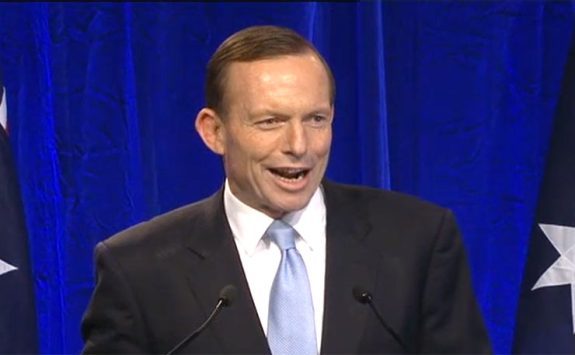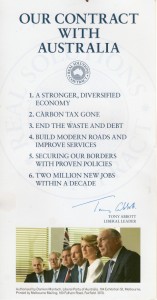“The facts about ‘boat people’ – The government and media are lying” is a title that perfectly sums up the emphasis in this guest post by Glenn Murray. This was first published on Glenn’s blog in October last year, but it is such a powerful exposé of the extent of the lies that we need to keep disseminating Glenn’s message. We would urge you all to share this widely. The lies can only be fully exposed if more people were aware of the truth.
Who are ‘boat people’?
‘Boat people’ are asylum seekers who arrive by boat, without a valid visa or any other appropriate authorisation. They’re seeking protection (asylum) because they fear persecution in/from the home country (torture, murder, illegal imprisonment, etc.).
Are ‘boat people’ doing something illegal?
No. Asylum seekers are NOT illegal. They’ve broken no laws at all. Under Article 14 of the 1948 Universal Declaration of Human Rights:
Everyone has the right to seek and to enjoy in other countries asylum from persecution.”
The terms, ‘illegal immigrants’, ‘illegals’, etc., are completely incorrect.
The 2012 UNHCR Guidelines on Detention explain it in plain English:
“Every person has the right to seek and enjoy in other countries asylum from persecution, serious human rights violations and other serious harm. Seeking asylum is not, therefore, an unlawful act… In exercising the right to seek asylum, asylum-seekers are often forced to arrive at, or enter, a territory without prior authorisation. The position of asylum-seekers may thus differ fundamentally from that of ordinary migrants in that they may not be in a position to comply with the legal formalities for entry. They may, for example, be unable to obtain the necessary documentation in advance of their flight because of their fear of persecution and/or the urgency of their departure. These factors, as well as the fact that asylum-seekers have often experienced traumatic events, need to be taken into account in determining any restrictions on freedom of movement based on irregular entry or presence.” (p.12)
Is Australia obligated to help them?
Yes. Australia has a legal obligation to assist ‘boat people’ whether or not they follow our polite protocol. We signed an international law called the Refugee Convention.
Are most ‘illegal immigrants’ boat people?
No. According to the Australian Department of Immigration and Border Protection, in 2012-13, 25,091 asylum seekers arrived by boat, more than 8,308 arrived by plane, 2,813 visa overstayers were detected, 2,328 immigration clearances were refused at air and seaports, and 15,077 other ‘unlawful non-citizens were discovered in the community.
And according to the Advertiser, that doesn’t even include all the illegals who fly in and are caught in the first two weeks. Another 200,000 or so!
Do all asylum seekers arrive by boat?
No. Since 2003, only 42% of all asylum seekers have arrived by boat.
In 2012-13, the rate was higher than that due to a spike in boat arrivals:
But as you can see below, the number of boat arrivals tend to go up and down. In other words, history tells us it will go down again after the current spike.
Are asylum seekers who arrive by boat treated the same as asylum seekers who arrive by plane?
No. Those arriving by plane aren’t detained. Plus, they can immediately apply for a protection visa, and are typically given a bridging visa while their application is processed. Boat people, on the other hand, are immediately moved to a detention centre, and they can’t immediately apply for a protection visa. Instead, they’re screened into a refugee status determination process to determine whether they’ll be allowed to apply.
What does ‘refugee’ mean?
A refugee is a person who has fled their country because of a well-founded fear of persecution (torture, murder, illegal imprisonment, etc.).
Are all ‘boat people’ actually refugees?
9 out of every 10 ‘boat people’ are eventually found to be genuine refugees. They have a genuine reason to fear persecution in their own country (as assessed against the regulations set out in our Migration Act).
According to the Department of Immigration and Border Control, since 2008, 92% of all considered asylum cases relating to people arriving by boat were granted (p.30).
As a graph:
But even if they weren’t, it still wouldn’t change Australia’s legal obligation. We are legally obliged to accept asylum seekers.
Are they ‘jumping the queue’?
No. There’s no such thing as a queue. Anyone who wants to claim asylum must leave their home country first. So all asylum seekers flee to other countries. Some overland, some by plane, some by boat. Some come to Australia, some go to other countries. This is the standard way to seek asylum. These people are called ‘onshore applicants’.
Sadly, a lot of refugees are very, very poor, so their only option is to travel overland to a neighbouring country. That’s why countries like Kenya and Ethiopia have huge refugee camps (because of trouble in neighbouring Somalia).
Sometimes refugees are resettled in a country other than the one they fled to. E.g. Someone might be resettled from a refugee camp to Australia. These people are called ‘offshore applicants’. This is something we voluntarily do to supplement the standard ‘onshore’ process. Again, resettling refugees from refugee camps is a voluntary act. Australia does it to share the refugee load with other countries. Accepting asylum seekers who come directly to Australia is our legal obligation.
Unfortunately, Australia’s policy is that when we accept an onshore refugee (i.e. an asylum seeker who arrives in Australia by plane or boat), a place is deducted from the offshore program (i.e. there’s one less place for people being moved from refugee camps). No other country in the world does this. In other words, it’s policy that takes places from camp refugees, not ‘boat people’.
Are they still genuine refugees if they can afford boat passage?
Yes. The manner of an asylum seeker’s arrival isn’t what makes them a genuine refugee (or not). They’re judged to be a genuine refugee if they have a well-founded fear of persecution at home.
And although the poor are often the victims of persecution, middle-class and wealthy people are persecuted too. In fact, because these people tend to be well educated, they are often persecuted for speaking out against oppressive government regimes. So just because someone can afford (or scrape together the funds) to make it to Australia, that doesn’t mean they’re not a refugee.
And remember, 92% of boat people since 2009 have been found to be genuine refugees, as assessed against the regulations set out in our Migration Act.
But even if they weren’t, Australia’s legal obligation remains the same. We are legally obliged to accept asylum seekers and process their claims.
Are they still genuine refugees if they don’t look battered, bruised and hungry when they arrive?
Yes. The Refugee Convention doesn’t say they have to look battered, bruised and hungry. It says they have to have a well-founded fear of persecution at home.
Out of interest, here’s a photo of some Jewish refugees who fled to Australia at the end of World War II (courtesy of The Australian). They don’t look particularly battered, bruised and hungry.
Are they still genuine refugees if they come via another country (e.g. Indonesia)?
Yes. Although the Refugee Convention says they must come directly from a territory where their life or freedom is threatened (as opposed to ‘skipping through’ a country like Indonesia), the 2001 Geneva Expert Round Table organised by the United Nations High Commissioner for Refugees concluded that:
Refugees are not required to have come directly from territories where their life or freedom was threatened… Article 31(1) was intended to apply, and has been interpreted to apply, to persons who have briefly transited other countries or who are unable to find effective protection in the first country or countries to which they flee.” (p.2, 10b, 10c)
Because Indonesia hasn’t signed the Refugee Convention, they’re not obliged to protect asylum seekers. As a result, asylum seekers who arrive in Indonesia live in constant fear.
Are they still genuine refugees if they don’t just flee to the closest country? Aren’t they cherry-picking?
Yes, they are still genuine refugees. There’s no law that says refugees must flee to the nearest country. In most cases, this would simply land them in a poverty-stricken, dangerous refugee camp for years. Nor is there any rule that says refugees can’t flee by plane or choose their destination.
It seems odd to me that some Australians want to vilify these people for using common sense and, in the process, reducing the load on the desperately poor countries that are actually being flooded by refugees.
Do they have passports to prove their identity? And do they burn their passports?
People (and the media) often get this confused. Boat people come by boat because they don’t an Australian visa, not because they don’t have ID. Many (perhaps most) do have passports and other identifying information, just don’t have an Australian visa.
There are reports of asylum seekers destroying their documents prior to interception by Australian Navy vessels. There are a number of reasons this could be happening: 1) As asylum seekers, they fear capture at home, so they have to destroy their real passports before they leave their home country; 2) They then use fake documents to leave their home country; and 3) They destroy these documents before arrival in Australia because they’re fake and don’t accurately represent their identity or situation, and would, therefore, impede their asylum case. I’ve also heard that people smugglers tell them to burn them as it will aid their asylum claim.
Some people smugglers also claim they sell fake passports and visas, which enable asylum seekers to fly into Australia, after which they’re advised to rip up their passports and claim asylum. But these asylum seekers often end up on dangerous boats anyway. No doubt this is another reason some boat people tear up their passports.
If they can afford boat passage, why don’t they just fly in?
Flying to Australia would definitely be cheaper and safer, and I’m sure all boat people would do it if they could. But the fact is that they have to get an appropriate visa first, and this isn’t always possible. The Australian embassies in Afghanistan and Iraq, for instance, don’t issue Australian visas. And that’s where 39% of our boat people since 2008 have come from!
What’s more, even when an embassy does issue visas (e.g. Sri Lanka, Iran & Pakistan, where 47% of our boat people have come from since 2008), the application process and requirements for an Australian visa are quite rigorous and time consuming. And if you’re fleeing for your life, you don’t usually have time to complete the application, have your documents certified and wait around for a visa to be approved.
No doubt there are also some boat people who destroy their passports. There are a few reasons this might happen: 1) As asylum seekers, they fear capture at home, so they have to destroy their real passports before they leave their home country; 2) They then use fake documents to leave their home country; and 3) They destroy these documents before arrival in Australia because they’re fake and don’t accurately represent their identity or situation, and would, therefore, impede their asylum case. I’ve also heard that people smugglers tell them to burn them as it will aid their asylum claim.
Do we get more asylum seekers than other countries?
No. In 2012, we ranked 20th overall, 29th per capita and 52nd relative to GDP. And remember approximately half of those people did NOT come by boat.
“Poor countries host vastly more displaced people than wealthier ones. While anti-refugee sentiment is heard loudest in industrialised countries, developing nations host 80 per cent of the world’s refugees.”
Secretary-General of the United Nations, Ban Ki-moon
And again, no matter what our ranking, we’re still are legally obliged to accept asylum seekers.
Do harsh border protection laws deter ‘boat people’?
No. There’s no evidence to suggest our harsh policies on ‘border protection’ reduce the number of boat people trying to get to Australia. Here’s a timeline showing when Australia introduced its harsh asylum seeker policies…
- June 1989 – Prime Minister Hawke introduced changes that included mandatory deportation, and allowed for the recovery of funds from asylum seekers to pay for the costs of their detention and deportation. The number of boat people continued to increase after these changes were introduced.
- December 1992 – Prime Minister Keating introduced limited mandatory detention. The number of boat people remained unchanged afterwards.
- April 1994 – Keating expanded mandatory detention. The number of boat people increased afterwards.
- October 1999 – Prime Minister Howard introduced temporary visas (TPVs). Instead of getting a permanent protection visa, refugees were instead given only temporary protection (a 3 year protection visa). After that, their case would be reviewed. Also, their protection could be revoked if they left Australia during the 3 years, and it didn’t allow their families to settle in Australia. The number of boat people continued to increase afterwards.
- September 2001 – Howard introduced the ‘Pacific Solution’. This involved offshore processing and detention, and turning back of boats. Again, some people claim this policy slowed the arrival of boats, but the data show the numbers were already dropping by the time he introduced the Pacific Solution. Plus, the introduction of the Pacific Solution (Sept 2001) coincided with the removal of the Taliban from power in Afghanistan (Oct 2001). Leading up to this point, Afghanistan had been one of our major sources of asylum seekers (17% in 2001-01). Also, from 2001 to 2002 there was a 45% drop in refugee numbers worldwide.
- August 2012 – Prime Minister Gillard reintroduces the Pacific Solution. It didn’t slow the boats. In fact, the number of boat more than doubled.
It’s clear these hard-line policies can’t be claimed as deterrents. In all but 2 cases, the number of boat people increased afterwards. Once it remained unchanged, and once it was already going down before the policy was introduced. So if we’re to believe that Australia’s harsh policy has any significant impact on boat people numbers, we’d have to deduce it’s often an incentive!
How many ‘boat people’ resettle in Australia? Won’t we be over-run?
No we won’t be over-run. Not even close! For the 2012-13 period, Australia makes available 190,000 places for immigrants. During the same period, 4,949 ‘boat people’ were granted refugees status in Australia. So refugees who arrive by boat make up just 2.5% of all immigration.
Let’s look at it another way. In 2012, only 4,949 boat people were granted refugee status in Australia. That’s one person per 4,718 Australians. You might just be able to see the thin line representing approved boat people in the graph below…
Don’t boat people get more social security?
No. Asylum seekers aren’t entitled to the same welfare as citizens and permanent residents. They get Asylum Seeker Assistance (ASA), which covers basic living expenses, at a rate below Centrelink benefits.
Once an asylum seeker’s claim is processed, and they’re judged a refugee, they receive the same amount of social security as a citizen or permanent resident. They “apply for social security through Centrelink like everyone else and are assessed for the different payment options in the same way as everyone else. There are no separate Centrelink allowances that one can receive simply by virtue of being a refugee.” (http://www.refugeecouncil.org.au/f/myth-long.php#centrelink)
Unfortunately, the Australian government doesn’t allow asylum seekers to work. Nor does it allow refugees to work until they become permanent residents (which can take years). If they were allowed to work, the burden on our welfare system would be far less.
Doesn’t it cost a lot to keep asylum seekers detained?
Yes. That’s another reason why we should stop doing it. According to the Parliamentary Budget Office, it costs approx $225,000 to detain a person on Manus Island or Nauru. If they were were allowed to live in the general community (say, in specified rural areas in need of a population injection), it would cost only $35,000.
But aren’t they all Muslims who’ll want us to submit to Sharia law?
No. In 2012-13, only about half (57%) of asylum claims are were from Muslim boat people fleeing countries that follow strict Sharia law. That’s just 1.4% of all our immigrants. And remember, these people are fleeing those Sharia law countries!
Doesn’t Tony Abbott have a mandate to stop the boats?
Arguably. But he does NOT have a mandate to stop them by breaching international law. Some voters definitely agreed with the stop the boats policy, and Abbott won the election on the back of that policy. But he didn’t mention breaching international law during his campaign, so he does not have a mandate to do so.
Abbott decided to breach international law, not voters.
In fact, only 45.6% of Australians actually voted for Abbott. Yes, he still won the election on preferences, and yes, ‘stop the boats’ was AN election campaign, but there’s a big divide between claiming a mandate on an issue and assuming the majority of Australians support it. And that 45.6% includes people who voted for Abbott based on other factors, such as hating Rudd, hating Labor, being over Labor’s idiotic back-room bickering, and supporting any one of the LNP’s other policies.
Is Australia breaching international law?
Yes. We’re breaching all of the following (see below list for details):
- UN Refugee Convention
- Universal Declaration of Human Rights (UDHR)
- International Convention for the Safety of Life at Sea (SOLAS)
- International Covenant on Civil and Political Rights (CCPR)
- United Nations Convention on the Rights of the Child (CRC)
- Convention against Torture and Other Cruel, Inhuman or Degrading Treatment or Punishment
- International Covenant on Economic, Social and Cultural Rights
- United Nations Convention on the Law of the Sea (UNCLOS)
- International Convention on Maritime Search and Rescue (SAR)
- International Maritime Organization (IMO)
- Australia’s Criminal Code (Commonwealth)
The UN Refugee Convention
The UN Refugee Convention requires that we must treat refugees at least as well as any other foreigner:
Except where this Convention contains more favourable provisions, a Contracting State shall accord to refugees the same treatment as is accorded to aliens generally” (Article 7, 1)
And that we must not send them anywhere where they’ll be unsafe or imprisoned:
No Contracting State shall expel or return (“refouler”) a refugee in any manner whatsoever to the frontiers of territories where his life or freedom would be threatened on account of his race, religion, nationality, membership of a particular social group or political opinion.” (Article 33, 1)
Importantly, it also says we must not penalise people who arrive without the appropriate visa or other paperwork:
The Contracting States shall not impose penalties, on account of their illegal entry or presence, on refugees who, coming directly from a territory where their life or freedom was threatened in the sense of article 1, enter or are present in their territory without authorization, provided they present themselves without delay to the authorities and show good cause for their illegal entry or presence” (Article 31, 1)
It also says we must not detain them longer than is necessary for their asylum claims to be processed:
The Contracting States shall not apply to the movements of such refugees restrictions other than those which are necessary and such restrictions shall only be applied until their status in the country is regularized or they obtain admission into another country.” (Article 31, 2)
But by locking up asylum seekers in detention centres, we’re not treating them as we do other foreigners. Nor are we detaining them merely for the time necessary to assess their asylum claims. Instead, as a direct penalty for the way they arrived, we’re detaining them indefinitely in order to deter other asylum seekers from coming to Australia by boat. Not only are their movements being restricted, but the conditions of their imprisonment are terrible – another penalty and deterrent.
The UNHCR Guidelines are very clear on this:
Detention must not be arbitrary… Mandatory or automatic detention is arbitrary as it is not based on an examination of the necessity of the detention in the individual case… Detention that is imposed in order to deter future asylum-seekers, or to dissuade those who have commenced their claims from pursuing them is inconsistent with international norms. Furthermore, detention is not permitted as a punitive – for example, criminal – measure or a disciplinary sanction for irregular entry or presence in the country. Apart from constituting a penalty under Article 31 of the 1951 Convention, it may also amount to collective punishment in violation of international human rights law.” (pages 15 – 18)
Also, by pushing/towing asylum seeker boats back to Indonesian waters from Australian waters, we’re once again restricting their movements unnecessarily and penalizing them. We’re also returning them to a place where the lives and freedom of many would be threatened. Many asylum seekers are Shia Muslims who are fleeing persecution by Sunni Muslims in their home country. Indonesia is 88.2% Muslim, and the majority of those Muslims are Sunni. So Shia Muslims face persecution in Indonesia just as they faced at home.
The UNHCR has been very clear on this too, telling Australia, in April 2014, that:
There are obligations as a signatory to the 1951 Convention and the 1967 protocol, which say: if you intercept in your territorial waters, you should allow those in need of protection to have access to the asylum system”
This wasn’t our first warning either. The UN warned Australia about this breach in early January, 2014, too:
UNHCR would be concerned by any policy or practice that involved pushing asylum-seeker boats back at sea without a proper consideration of individual needs for protection… Any such approach would raise significant issues and potentially place Australia in breach of its obligations under the 1951 Refugee Convention and other international law obligations.”
Incidentally, we’re further breaching our responsibilities by changing workplace safety laws to exempt Navy sailors from their obligation to take ‘reasonable care’ to ensure the safety of asylum-seekers. In doing so we’re indirectly penalising asylum seekers.
What’s more, Article 16 of the Refugee Convention also stipulates that asylum seekers must have access to free legal assistance:
A refugee shall enjoy in the Contracting State in which he has his habitual residence the same treatment as a national in matters pertaining to access to the Courts, including legal assistance and exemption from cautio judicatum solvi“
(“Cautio judicatum solvi” means payment of security for legal costs.) Sadly, however, our government now denies legal assistance to asylum seekers who arrive by boat.
The Universal Declaration of Human Rights (UDHR)
Article 2 of the Universal Declaration of Human Rights (UDHR) says that:
Everyone is entitled to all the rights and freedoms set forth in this Declaration, without distinction of any kind, such as race, colour, sex, language, religion, political or other opinion, national or social origin, property, birth or other status. Furthermore, no distinction shall be made on the basis of the political, jurisdictional or international status of the country or territory to which a person belongs, whether it be independent, trust, non-self-governing or under any other limitation of sovereignty.” (Emphasis added)
By arbitrarily detaining asylum seekers, we are violating their fundamental human rights.
Other human rights conventions
According to Julian Burnside QC, by “using arbitrary detention for asylum seekers, and subjecting people (including children) to conditions which put their physical and mental health at risk in order to persuade them to return to their homelands, and deter further people from seeking asylum in Australia”, we’re breaching the following international conventions:
What’s more, recently a Sudanese asylum seeker claimed he was deliberately burned by Australian Navy personnel. Yet despite being legally obligated to investigate the matter, the Australian government is investigating the ABC, for reporting the claims! Under the United Nations Convention against Torture, which we voluntarily signed, we agree to “ensure that its competent authorities proceed to a prompt and impartial investigation, wherever there is reasonable ground to believe that an act of torture has been committed in any territory under its jurisdiction.” (Article 12, Convention against Torture and Other Cruel, Inhuman or Degrading Treatment or Punishment).
We’re also breaching the International Covenant on Economic, Social and Cultural Rights (Article 2(2)), under which it is prohibited to detain someone on the basis of “race, colour, sex, language, religion, political or other opinion, national or social origin, property, birth or other status”.
Australia was also strongly criticised by independent organisation, Human Rights Watch, in its 2014 World Report (p.292):
Successive governments have prioritized domestic politics over Australia’s international legal obligations to protect the rights of asylum seekers and refugees, many of who have escaped from appalling situations in places like Afghanistan and Sri Lanka. Too often, the government has attempted to demonize those trying to reach Australia by boat and has insisted that officials refer to all asylum seekers who do so as illegal maritime arrivals.”
Laws of the sea
The International Convention for the Safety of Life at Sea (SOLAS) requires contracting states to:
…ensure that necessary arrangements are made for distress communication and co-ordination…”
The 2012 Report of the Expert Panel on Asylum Seekers, interprets this to mean “Where assistance has been provided to persons in distress in a state’s SRR, that state has primary responsibility to ensure that coordination and cooperation occurs between governments, so that survivors are disembarked from the assisting ship and delivered to a place of safety. ” But Australian defence personnel are not helping asylum seekers disembark or otherwise reach safety. Instead, they’re leaving them to fend for themselves, hours offshore of Indonesia.
The United Nations Convention on the Law of the Sea (UNCLOS) requires contracting states to:
… promote the establishment, operation and maintenance of an adequate and effective search and rescue service regarding safety on and over the sea and, where circumstances so require, by way of mutual regional arrangements co-operate with neighbouring States for this purpose.”
But Australian defence personnel are not co-operating with Indonesia to ensure the safety of asylum seekers. Instead, they’re leaving them to fend for themselves, hours offshore of Indonesia.
The International Convention on Maritime Search and Rescue (SAR) requires contracting states to:
… ensure that assistance be provided to any person in distress at sea … regardless of the nationality or status of such a person or the circumstances in which that person is found” and to “… provide for their initial medical or other needs, and deliver them to a place of safety.”
But Australian defence personnel are not delivering asylum seekers to a place of safety, they’re leaving them to fend for themselves, hours offshore of Indonesia.
What’s more, according to the International Maritime Organization (IMO), we’re also breaching:
- Amendments to the SOLAS and SAR Conventions, which require contracting states to: “… arrange disembarkation as soon as reasonably practicable”; and
- Guidelines on the Treatment of Persons Rescued at Sea, which state: “The government responsible for the SAR region in which survivors were recovered is responsible for providing a place of safety or ensuring that such a place of safety is provided,” where a ‘place of safety’ is defined as “… a location where rescue operations are considered to terminate, and where: the survivors’ safety or life is no longer threatened; basic human needs (such as food, shelter and medical needs) can be met; and transportation arrangements can be made for the survivors’ next or final destination.”
- But Australian defence personnel are not arranging disembarkation of asylum seekers, nor providing or ensuring a place of safety, they’re leaving them to fend for themselves, hours offshore of Indonesia.
Australia’s Criminal Code (Commonwealth)
Julian Burnside QC also suggests we may be committing “a crime against humanity contrary to section 268.12 of the Criminal Code (Commonwealth)”:
Article 9 of the Covenant prohibits arbitrary detention, yet people sent to Nauru and Manus Island, by Australia at Australia’s expense, are being arbitrarily detained in disturbing conditions. The refugees without ASIO security clearances are also being arbitrarily detained. This then constitutes a crime against humanity, according to the Criminal Code in section 268.12.”
Summary
So here’s what the facts tell us:
- ‘Boat people’ are not breaking any law, so they’re not ‘illegal’.
- Australia has a legal obligation under international law to accept asylum seekers.
- Less than half of all ‘illegal immigrants’ are ‘boat people’.
- Only about half of all asylum seekers arrive by boat.
- 92% of ‘boat people’ are genuine refugees; they have a genuine reason to fear persecution in their own country.
- ‘Boat people’ are not jumping the queue.
- They’re still genuine refugees if they can afford boat passage.
- They’re still genuine refugees if they come via Indonesia.
- 51 other countries get proportionally more asylum seekers than Australia (relative to GDP).
- ‘Soft’ border protection laws did NOT cause an influx of ‘boat people.
- Refugees who came by boat make up only 2.5% of all of Australia’s immigrants.
- Only 1.4% of all our immigrants are Muslim boat people from countries that follow strict Sharia law. And they’re fleeing those Sharia law countries!
- Abbott does NOT have a mandate to stop the boats by breaching international law.
- Australia is breaching international law by detaining boat people unnecessarily and turning them away (e.g. sending them to Indonesia).
In other words, ‘boat people’ are a small issue to Australians. They’re not doing anything wrong, and they hardly make a ripple in our overall immigration intake. We only think they’re a big issue is because the government makes them a big issue, and the media happily plays along because it’s a big story.
In reality, the only people to whom the whole ‘boat people’ issue is a big issue are boat people themselves. And, sadly, the smokescreen created by the government is very effectively obscuring that fact.
Why don’t most people know this stuff?
The fact that most people don’t know this stuff is testament to the dishonesty of our politicians and the brainwashing by or media.
This isn’t a conspiracy theory. It’s all fact on public record. Look it up. It’s another instance of the government and media distracting voters from real issues by pointing the finger and finding a common enemy.
That’s why the Coalition built its 2013 election campaign on the ‘Stop the Boats’ line. And why they changed the name of the immigration department from “The Australian Department of Immigration and Citizenship” to “The Australian Department of Immigration and Border Protection”. And why they even changed the processing label applied to asylum seeker boat arrivals from “Irregular Maritime Arrivals” to “Illegal Maritime Arrivals”.
None of this is accidental.
Am I suggesting we should open our borders up completely?
No. I’m saying we should separate our onshore and offshore refugee quotas, so boat people don’t take places of resettled camp refugees. And we shouldn’t be using ‘population’ issues as an excuse to turn ‘boat people’ away. If there are population issues (which I don’t believe there are), curtail regular immigration. At least then the people being turned away will merely be inconvenienced. They won’t be killed, tortured or wrongfully imprisoned.
What can we do about it?
If you feel strongly about this issue (and any other problems being caused by the Abbott government), make sure you write to your local politicians and to Abbott and co. Tell them what you think, and demand they stop.
Beyond that, I think we need a Constitutional Convention. And when we get it, we need to change the system to a vote-for-policies system. No politicians, no parties… And tighter regulation on corporations. I’ll be blogging about my thoughts on this soon, so make sure you subscribe to my blog.
What do you think? Please comment…
I’d love to hear your thoughts on this issue. Please add a comment below, so we can chat about it.
You can follow Glenn on Twitter, Google+, or Facebook.
Like what we do at The AIMN?
You’ll like it even more knowing that your donation will help us to keep up the good fight.
Chuck in a few bucks and see just how far it goes!
Your contribution to help with the running costs of this site will be gratefully accepted.
You can donate through PayPal or credit card via the button below, or donate via bank transfer: BSB: 062500; A/c no: 10495969

